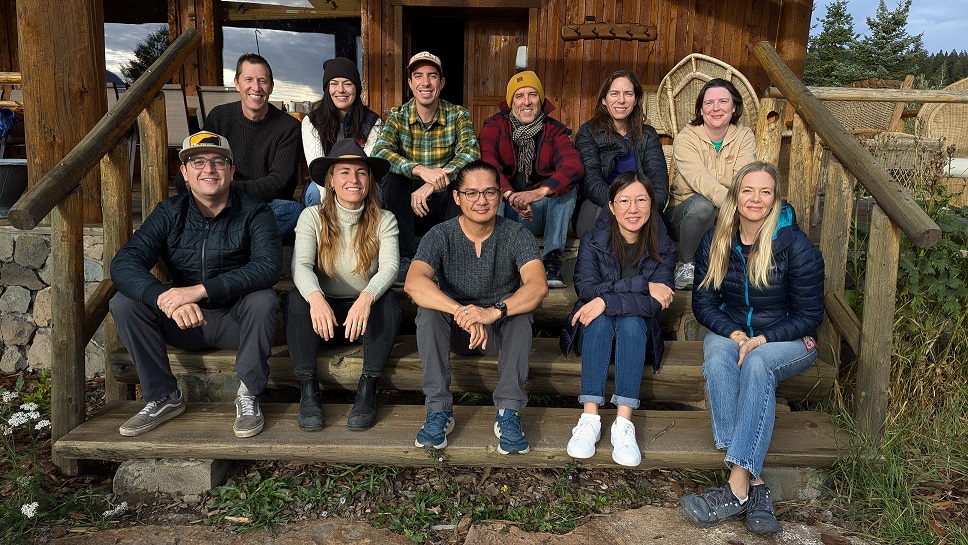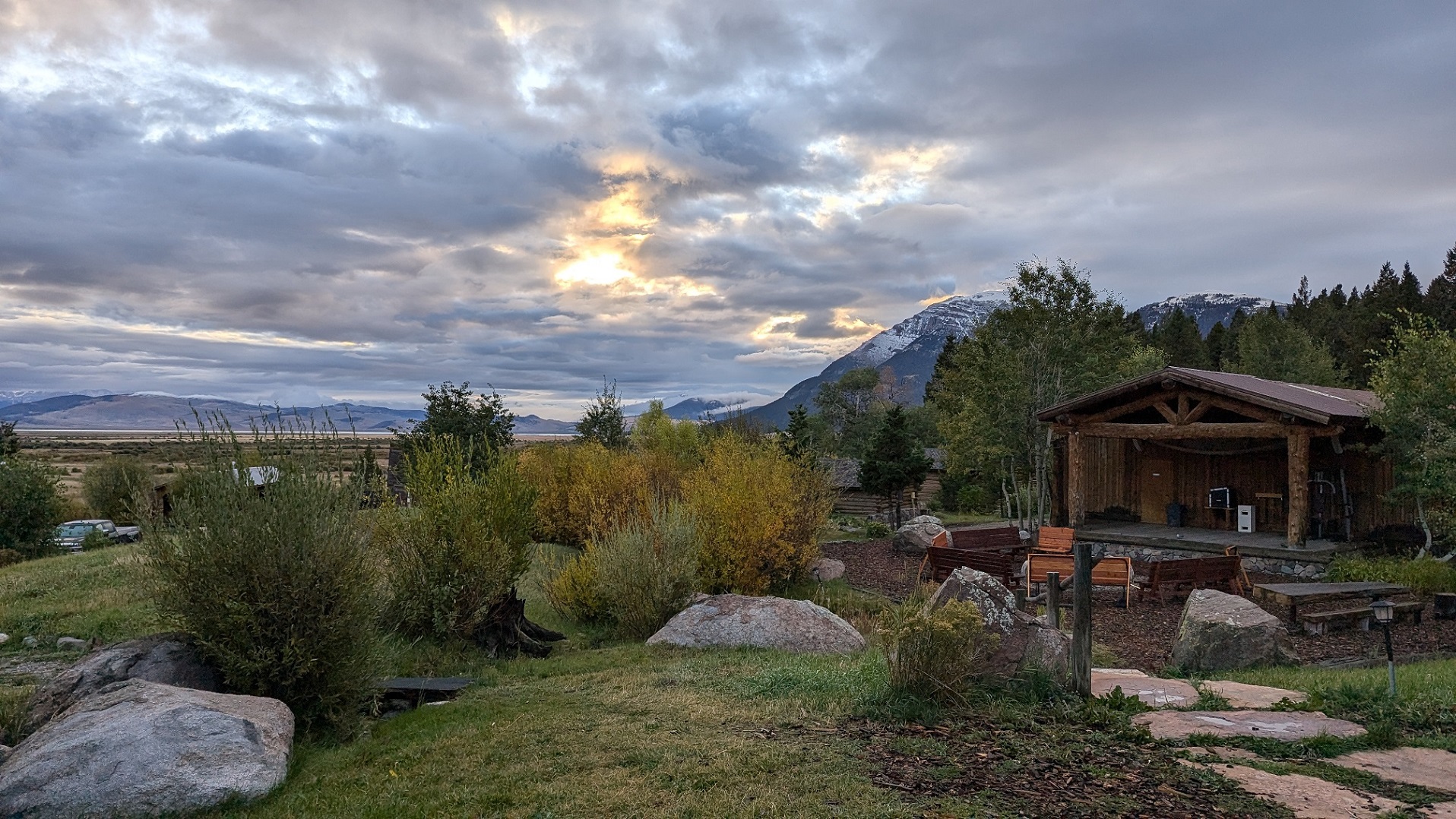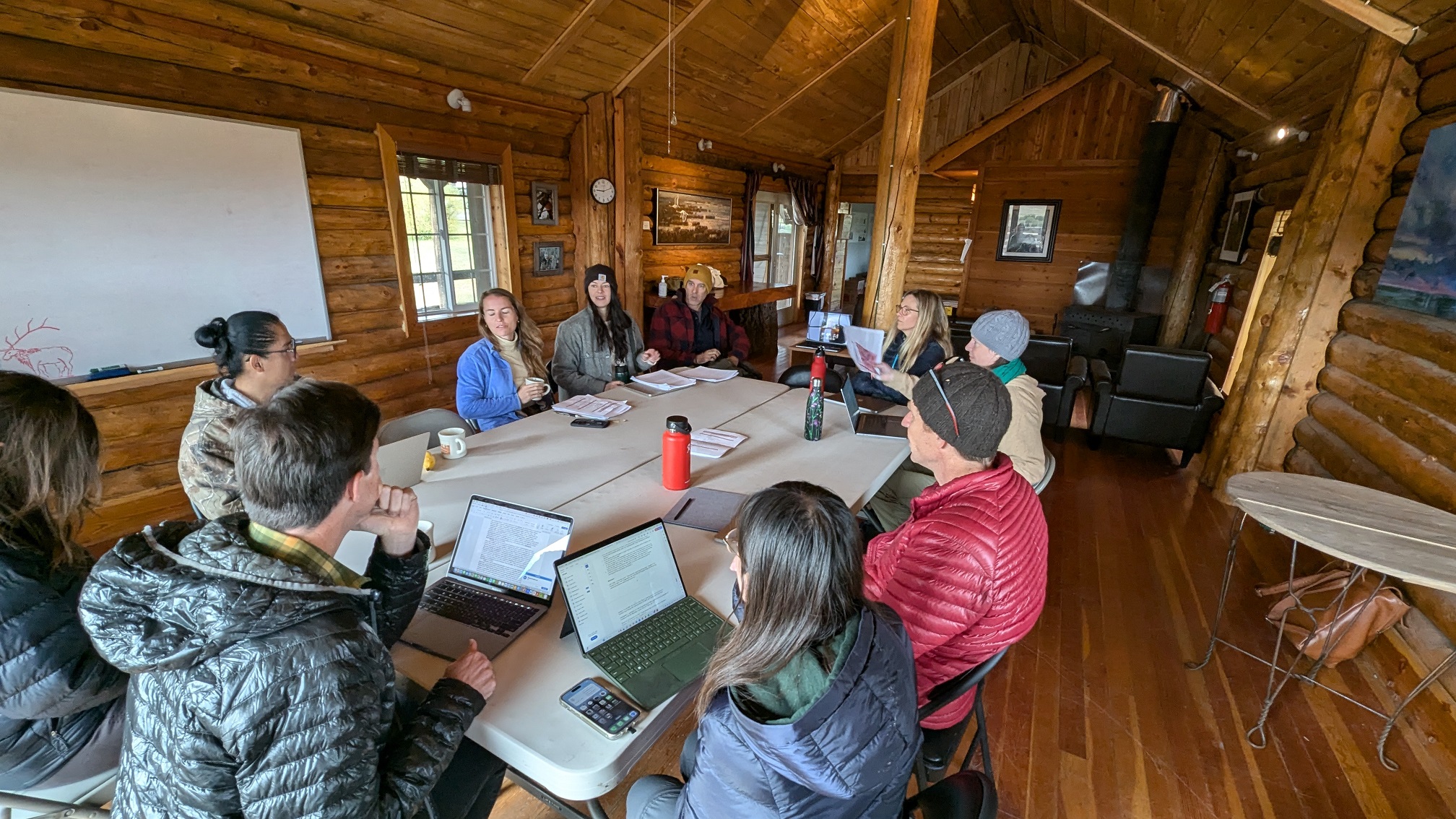Jessica DiCarlo organizes writing retreat at Taft Nicholson Center
In September 2024, ESS Assistant Professor Jessica DiCarlo co-organized a writing retreat with Hilary Faxon (University of Montana) at the University of Utah’s Taft Nicholson Center, nestled in Montana’s picturesque Centennial Valley. The event was generously funded and sponsored by a Henry Luce Foundation Asia Response Grant and The Asia Center at the University of Utah. The gathering was designed around principles of slow scholarship, offering participants an opportunity to spend time, converse, and collaborate over several days. The retreat’s structure provided an environment for deep reflection and intellectual exchange, alongside many shared group walks, meals, and time around a campfire.
The theme, “Revisiting the Political Ecology and Agrarian Studies of Southeast Asia,” brought together a group of early to mid-career political ecologists. These scholars shared a long-term commitment to and in-depth research experience across Southeast Asia, for example, in Laos, Myanmar, Cambodia, Thailand, Indonesia, and Singapore. Their collective expertise spans a range of political ecology topics, approaches, and theoretical orientations.
 The goal of the retreat—to offer fresh insights and push the boundaries of political
ecology in Southeast Asia—will lead to two core outputs. The first is a Special Issue
that explores how recent research in Southeast Asia has expanded, challenged, and
reconceptualized political ecology. The issue contributes contemporary insights to
updating analytical concepts, synthesizing emergent themes, and reflecting on changing
practices within political ecology and agrarian studies, asking:
The goal of the retreat—to offer fresh insights and push the boundaries of political
ecology in Southeast Asia—will lead to two core outputs. The first is a Special Issue
that explores how recent research in Southeast Asia has expanded, challenged, and
reconceptualized political ecology. The issue contributes contemporary insights to
updating analytical concepts, synthesizing emergent themes, and reflecting on changing
practices within political ecology and agrarian studies, asking:
- How are grounded struggles from the region reformulating classic concepts in political ecology?
- What emerging themes demand empirical attention and new theorization from political ecologists?
- How are changing practices of research, ethics and scholar-activism responding to contemporary socio-environmental challenges?

These questions are explored through the lens of the participants’ body of research, from theorizing slow resistance to hydropower in Thailand (Fung and Lamb 2023) and ceasefire capitalism in Myanmar’s extractive borderlands (Woods 2011) to historicizing upland geopolitics in Laos (Dwyer 2022), and reflecting on being a “local researcher” in Cambodia (Chann 2023). Others center questions of questions of citizenship and statelessness in Thailand (Flaim et al. 2020), financialization of agrarian change in Cambodia (Green 2022; 2024), Chinese hydropower development in Laos (Harlan and Lu 2024), and transboundary governance of the Mekong (Yong 2022). Questions of land are central to many participants’ analysis, from the value of land and transformation of property relations (Kenney-Lazar 2013; 2020) and land control and appropriation through infrastructure (DiCarlo 2024; DiCarlo & Sims 2023) in Laos to theorizing relations between digital technologies and land politics in Myanmar and Indonesia (Faxon 2020; Wittekind and Faxon 2023; Faxon et al. 2024). Many build on Peluso’s (Peluso and Vandergeest 2001) foundational work on the political forest and territorialization.

The second output from the weekend will contribute to Grassroots of the Journal of Political Ecology through a project entitled “Roots, Resistance, and Decoloniality: Political Ecology by, for, and of Southeast Asia.” This endeavor brings together emerging voices and new perspectives of political ecology within Southeast Asia and will model an alternative approach to writing and editing, including close mentorship between authors and editors. Our hope from the workshop is that it will serve as a launching point for further collaboration within this group and beyond.
Participants included:
- Jessica DiCarlo, University of Utah (organizer)
- Hilary Faxon, University of Montana (organizer)
- Michael Dwyer, University of Indiana Bloomington
- Amanda Flaim, Michigan State University
- Sopheak Chann, University of Kentucky
- Vanessa Lamb, York University
- Zali Fung, University of Melbourne
- Tyler Harlan, Loyola Marymount University
- Kevin Woods, East-West Center & University of Hawaii
- Jesse Rodenbiker, Rutgers Unievrsity
- Nathan Green, National University of Singapore
- Miles Kenney-Lazar, University of Melbourne
- Ming Li Yong, East-West Center
- Kim Korinek, University of Utah
- Bryce Garner, University of Utah
- Nancy Peluso, University of California Berkeley
About the Blog
Discussion channel for insightful chat about our events, news, and activities.
Categories
Featured Posts
Tag Cloud
- Alumni (1)
- Snow (2)
- Student Research (1)
- Dust (2)
- award (7)
- faculty research (9)
- remote sensing (1)
- Oquirrh (1)
- School of Environment Society and Sustainability (29)
- student research (3)
- park (1)
- planning (1)
- alumni (1)
- research (8)
- undergraduate (4)
- university (1)
- science (1)
- sustainability (5)
- environment (1)
- School of Environment (2)
- Society & Sustainability (2)
- student (2)
- scholarship (2)
- air (1)
- wildfire (3)
- air quality (1)
- climate change (2)
- urban tree (1)
- paleoecology (1)
- ethnobotany (1)
- cel (1)
- UAP (1)
- field research (1)
- open house (1)
- climate grief (1)
- field trip (1)
- organic farming (1)
- political ecology (1)
- taft nicholson center (1)
- writing retreat (1)
- Southeast Asia (1)
- Climate change (2)
- Environmental Justice (2)
- Great Salt Lake (1)
- Faculty research (3)
- Job posting (1)
- Data science (1)
- Climate Change (1)
- Rivers and Streams (1)
- Geology (1)
- Faculty Research (1)
- Green spaces (1)
- Invasive species (1)
- Forest ecology (1)
- Utah wildlife (1)
- water security (1)
- renewable energy (1)
- economic development (1)
